Viva La Bibliothèque ✌
Viva la bibliothèque ✌
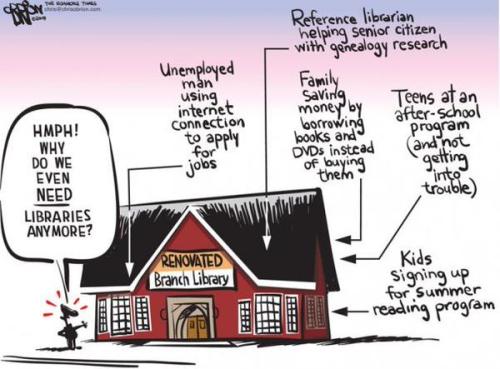
More Posts from Moola-of-hula and Others
this ↑




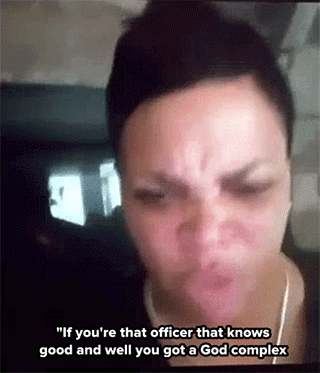
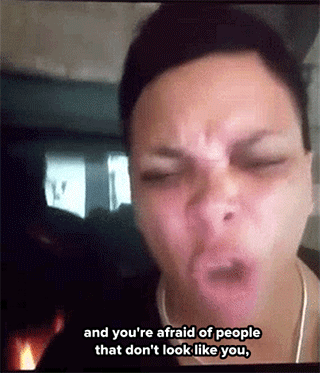

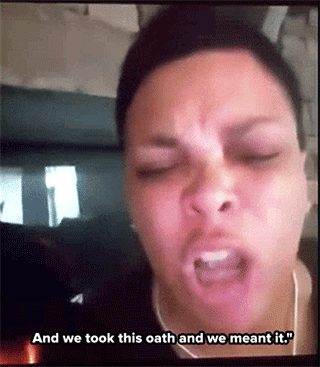

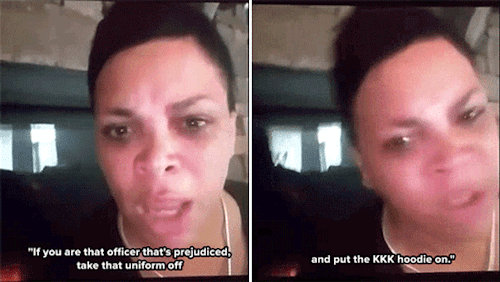
Watch: She has seen a lot but this is what hurts her the most.
Medical School Interviews
Across the UK hopeful medics will have sent off their applications and are eagerly awaiting for an interview. Considering I was in the same position a literal year ago I thought I would share some advice for the interviews. Unfortunately, I can’t disclose what interview questions I got but I can give some general tips that really helped me.
First, I thought I would give some background to my application. I applied to 4 medical schools that were all MMI so the advice I am about to give is more geared towards MMI style interviews. I was very fortunate to get 3 interviews and 3 offers for medicine.
Look at the Medical Schools website. Each medical school tends to outline the qualities they are looking for at interview on their website. Think of specific examples for each quality and practice how you have used/developed said quality and why this would make you a good doctor.
Stay away from Student Room. The number of people that told me to stay away from student room was enormous and yet I still ignored them and checked. All it does is scare you and makes you panic. It’s not worth the stress at all. Just focus on your application and nobody else’s.
Be professional. Medical schools really value professionalism and teach it throughout medical school. However, there is the expectation for you to have a certain level of professionalism before you enter medical school. Little things such as what you wear can make a big impact. For example, guys tended to wear suits at the interview however it isn’t necessary to as long as you are dressed smart then it is okay. Arrive on time. It looks really bad if you arrive late to your interview and you will also probably be really stressed as well which won’t help at all. If you are going to be late ring the medical school well in advance.
Some interviewers may be mean. I wish someone had told me this. Interviewers are there to test certain skills and therefore may be appear to be really brutal to you. Remember, that is what they are there for, stay calm and prove to them that you can handle it. This is essential as not every patient is going to be compliant and they need to test that you are able to cope with it.
Stay up to date with the news. When I had my interviews, the junior doctor contract was very hot in the news so I read around the topic. However, medical schools expect that of you and will probably not test you about that as it doesn’t really show anything that makes you stand out. But keeping up to date with scientific advancements in the medical field will put you in good stead.
Be honest. I think this is probably the most important tip I have. If you do not know something, then tell them that you don’t know it. The person asking will probably have a lot of expertise on the subject and will be able to tell when you are waffling. A lot of the time they are trying to see if you are brave enough to say you do not know rather than seeing if you actually do know something on that topic. Remember that a responsible doctor is one that stays within their limits and admits that they do not know something. If you are quite competent on the subject, then do talk about it however do not feel pressured to have a conversation with them about it.
So there are all my general tips! I just want to finish with saying that please don’t worry if you mess up a station. MMIs typically have 7/8 stations, you are judged on all the stations not just one, so take a deep breath and smash the other ones. If anyone has any questions regarding interviews just send me a message.
Good luck to everyone applying!




Underrated books?
the naturals by jennifer lynn barnes
the fixer by jenniger lynn barnes
penryn and the end of days by susan ee
the archived by victoria schwab
we are the ants by shaun david hutchinson
at the edge of the universe by shaun david hutchinson
all our yesterdays by cristin terrill
the lost girl by sangu mandanna
an ember in the ashes by sabaa tahir
the illuminae files by amie kaufman and jay kristoff
the star-touched queen by roshani chokshi
the diviners by libba bray
graceling realm by kristin cashore
cyclone series by courtney milan
poison study by maria v. snyder
wolf by wolf by ryan graudin
letters to the lost by brigid kemmerer
starbound trilogy by amie kaufman
into the blue by pene henson
mermaids of eriana kawi by tiana warner
timekeeper by tara sim
gallagher girls by ally carter
dangerous girls/dangerous boys by abigail haas
everything by patrick ness/adam silvera/natalia jaster
How to read a scientific paper
Step 1: begin at the beginning
read the title
get excited for cool science
note the authors
get mad at them for having more papers than you
spend ten minutes wondering if you’d have been better off going to whatever institution they’re at
die a little inside
Step 2: the abstract and introduction
read the abstract
skip right to the introduction because you’re not completely sure what they’re talking about and maybe that will clear it up
alright now we’re talking
understand the entire first paragraph of the introduction
mostly get the second and third paragraphs
skip over the technical bit at the end because boring
Step 3: the results (aka the good stuff)
read the first paragraph
really not get what’s being said
skip right to figure 1
read the figure caption
call it good, you got the jist
repeat for the remaining figures
Step 4: give up
this paper really isn’t answering the question you had in the first place
you’ll just cite it later it’s fine
Step 5: keep doing science!
fail because of some unexpected and puzzling problem
spend 2-6 weeks troubleshooting and getting nowhere
decide to do another literature search to see if anyone else has had this issue
find the same paper you read before cited a bunch
Step 6: reread
actually like read it this time
get to the end
find the answer to your question
die a little inside
wonder why you didn’t just read it fully to begin with and save yourself weeks of work
Step 7: follow citations to another paper that looks relevant
repeat entire cycle
wonder why science is so hard

To help move away from summary and toward ANALYSIS, it’s important to incorporate strong verbs into your writing when discussing the writer’s rhetorical choices. Below is a list of verbs that are considered weak (imply summary) and a list of verbs that are considered strong (imply analysis). Strive to use the stronger verbs in your essays to help push yourself away from summary and toward analysis: ex “The writer flatters…” NOT “The writer says…”
Weak Verbs (Summary):
says
explains
relates
states
goes on to say
shows
tells
this quote shows
Strong Verbs (Analysis):
Argues, admonishes, analyzes, compares, contrasts, defines, demonizes, denigrates, describes, dismisses, enumerate, expounds, emphasizes, establishes, flatters, implies, lionizes, lists, minimizes, narrates, praises, processes, qualifies, questions, ridicules, suggests, supports, trivializes, vilifies, warns
Powerful and Meaningful Verbs to Use in an Analysis (Alternatives to Show):
Acknowledge, Address, Analyze, Apply, Argue, Assert, Augment
Broaden
Calculate, Capitalize, Characterize, Claim, Clarify,Compare, Complicate, Confine, Connect, Consider, Construct, Contradict, Correct, Create, Convince, Critique
Declare, Deduce, Defend, Demonstrate, Deny, Describe, Determine, Differentiate, Disagree, Discard, Discover, Discuss, Dismiss, Distinguish, Duplicate
Elaborate, Emphasize, Employ, Enable, Engage, Enhance, Establish, Evaluate, Exacerbate, Examine, Exclude, Exhibit, Expand, Explain, Exploit, Express, Extend
Facilitate, Feature, Forecast, Formulate, Fracture
Generalize, Group, Guide
Hamper, Hypothesize
Identify, Illuminate, Illustrate, Impair, Implement, Implicate, Imply, Improve, Include, Incorporate, Indicate, Induce, Initiate, Inquire, Instigate, Integrate, Interpret, Intervene, Invert, Isolate
Justify
Locate, Loosen
Maintain, Manifest, Manipulate, Measure, Merge, Minimize, Modify, Monitor
Necessitate, Negate, Nullify
Obscure, Observe, Obtain, Offer, Omit, Optimize, Organize, Outline, Overstate
Persist, Point out, Possess, Predict, Present, Probe, Produce, Promote, Propose, Prove, Provide
Qualify, Quantify, Question
Realize, Recommend, Reconstruct, Redefine, Reduce, Refer, Reference, Refine, Reflect, Refute, Regard, Reject, Relate, Rely, Remove, Repair, Report, Represent, Resolve, Retrieve, Reveal, Revise
Separate, Shape, Signify, Simulate, Solve, Specify, Structure, Suggest, Summarize, Support, Suspend, Sustain
Tailor, Terminate, Testify, Theorize, Translate
Undermine, Understand, Unify, Utilize
Validate, Vary, View, Vindicate
Yield
RIP, if it's any comfort there was once a spider on my light fixture and it fell on my head as I was watching it.
therr’s a fucking spider in my room and i don’t know where it went it was nice knowing you guys
-
 queerhistorymajor liked this · 3 weeks ago
queerhistorymajor liked this · 3 weeks ago -
 scurvioli liked this · 4 weeks ago
scurvioli liked this · 4 weeks ago -
 architectofimagination reblogged this · 4 weeks ago
architectofimagination reblogged this · 4 weeks ago -
 grace-in-the-wilderness reblogged this · 4 weeks ago
grace-in-the-wilderness reblogged this · 4 weeks ago -
 grace-in-the-wilderness liked this · 4 weeks ago
grace-in-the-wilderness liked this · 4 weeks ago -
 ziuechoes reblogged this · 4 weeks ago
ziuechoes reblogged this · 4 weeks ago -
 mushroominawaterbottle liked this · 4 weeks ago
mushroominawaterbottle liked this · 4 weeks ago -
 puppygirlsrituals liked this · 1 month ago
puppygirlsrituals liked this · 1 month ago -
 welladjustedgirly liked this · 1 month ago
welladjustedgirly liked this · 1 month ago -
 bonesandthingsgoboom reblogged this · 1 month ago
bonesandthingsgoboom reblogged this · 1 month ago -
 bonesandthingsgoboom liked this · 1 month ago
bonesandthingsgoboom liked this · 1 month ago -
 kitkuu liked this · 1 month ago
kitkuu liked this · 1 month ago -
 pinkknight999 reblogged this · 1 month ago
pinkknight999 reblogged this · 1 month ago -
 pinkknight999 liked this · 1 month ago
pinkknight999 liked this · 1 month ago -
 curiouskeebler reblogged this · 1 month ago
curiouskeebler reblogged this · 1 month ago -
 we-be-me reblogged this · 1 month ago
we-be-me reblogged this · 1 month ago -
 we-be-me liked this · 1 month ago
we-be-me liked this · 1 month ago -
 flying-pierog-art liked this · 1 month ago
flying-pierog-art liked this · 1 month ago -
 dragonfreckles reblogged this · 1 month ago
dragonfreckles reblogged this · 1 month ago -
 dragonfreckles liked this · 1 month ago
dragonfreckles liked this · 1 month ago -
 hihello-what-are-you-doing-here reblogged this · 1 month ago
hihello-what-are-you-doing-here reblogged this · 1 month ago -
 hihello-what-are-you-doing-here liked this · 1 month ago
hihello-what-are-you-doing-here liked this · 1 month ago -
 mizuthe-cat reblogged this · 1 month ago
mizuthe-cat reblogged this · 1 month ago -
 mizuthe-cat liked this · 1 month ago
mizuthe-cat liked this · 1 month ago -
 mochuh liked this · 1 month ago
mochuh liked this · 1 month ago -
 severevoiddragon liked this · 1 month ago
severevoiddragon liked this · 1 month ago -
 mintdinostuff reblogged this · 1 month ago
mintdinostuff reblogged this · 1 month ago -
 mintdinostuff liked this · 1 month ago
mintdinostuff liked this · 1 month ago -
 kofitiamat liked this · 1 month ago
kofitiamat liked this · 1 month ago -
 luellal0l reblogged this · 1 month ago
luellal0l reblogged this · 1 month ago -
 ace1diots liked this · 1 month ago
ace1diots liked this · 1 month ago -
 dragonflavoredcake liked this · 1 month ago
dragonflavoredcake liked this · 1 month ago -
 dragonflavoredcake reblogged this · 1 month ago
dragonflavoredcake reblogged this · 1 month ago -
 notanovascotian liked this · 1 month ago
notanovascotian liked this · 1 month ago -
 hyperfixation-hopper reblogged this · 1 month ago
hyperfixation-hopper reblogged this · 1 month ago -
 hyperfixation-hopper liked this · 1 month ago
hyperfixation-hopper liked this · 1 month ago -
 pandaren reblogged this · 1 month ago
pandaren reblogged this · 1 month ago -
 pandaren liked this · 1 month ago
pandaren liked this · 1 month ago -
 hearts4pearlescentmoon liked this · 1 month ago
hearts4pearlescentmoon liked this · 1 month ago -
 hearts4pearlescentmoon reblogged this · 1 month ago
hearts4pearlescentmoon reblogged this · 1 month ago -
 queeniesretrozone reblogged this · 1 month ago
queeniesretrozone reblogged this · 1 month ago -
 sincerecinnamon reblogged this · 1 month ago
sincerecinnamon reblogged this · 1 month ago -
 sincerecinnamon liked this · 1 month ago
sincerecinnamon liked this · 1 month ago -
 unbranded-chaos reblogged this · 1 month ago
unbranded-chaos reblogged this · 1 month ago -
 unbranded-chaos liked this · 1 month ago
unbranded-chaos liked this · 1 month ago -
 theultimaterewatcher reblogged this · 1 month ago
theultimaterewatcher reblogged this · 1 month ago -
 theultimaterewatcher liked this · 1 month ago
theultimaterewatcher liked this · 1 month ago -
 donethatbeforelong liked this · 1 month ago
donethatbeforelong liked this · 1 month ago -
 ajsvthefourth reblogged this · 1 month ago
ajsvthefourth reblogged this · 1 month ago -
 ajsvthefourth liked this · 1 month ago
ajsvthefourth liked this · 1 month ago












